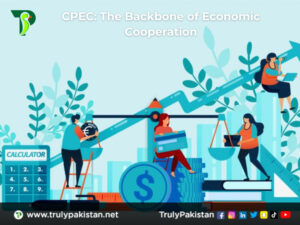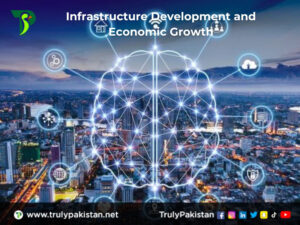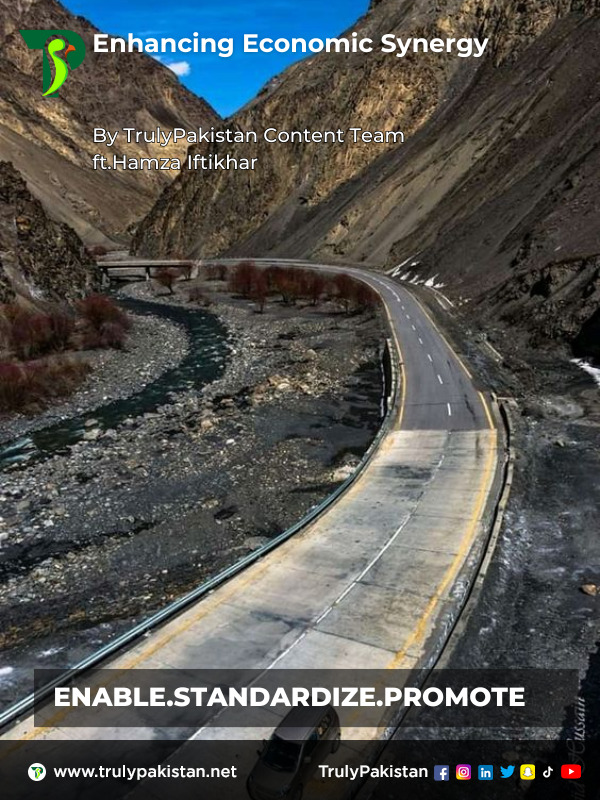CPEC: The Backbone of Economic Cooperation
The China-Pakistan Economic Corridor (CPEC) unequivocally stands as the central pillar of Pakistan-China Economic Relations. This expansive web of highways, railways, and pipelines serves as a quintessential exemplar of infrastructure development, profoundly ingrained in the Belt and Road Initiative (BRI), and the driving engine propelling their strategic alliance forward.. Infrastructure development through CPEC has unleashed substantial economic growth in Pakistan.

Infrastructure Development and Economic Growth
The inception of the China-Pakistan Economic Corridor (CPEC) heralds a new era of infrastructure development within Pakistan, exerting a profound influence on the nation’s economic progression. The meticulous construction of roads and railways has fortified connectivity, yielding swifter conveyance of goods and people, thereby mitigating transportation expenditures and time constraints. This multifaceted transformation has substantively invigorated economic expansion and fortified Pakistan’s role as a prominent participant in the Belt and Road Initiative.

Energy Initiatives and Inflows of Foreign Direct Investment (FDI)
The initiation of energy initiatives, financially supported by China, has efficiently addressed Pakistan’s energy challenges, consequently reducing its dependence on expensive energy imports.. Several coal and renewable energy projects have boosted electricity generation capacity, further stimulating industrial output. This energy revolution has also attracted substantial foreign direct investment (FDI), promoting sustainable economic development.
Trade Accords and Bilateral Commercial Relations
Pakistan and China have firmly established trade accords, with the noteworthy China-Pakistan Free Trade Agreement (CPFTA) as a conspicuous illustration, acting as a driving force behind the substantial amplification of bilateral trade. China has assumed the pivotal role of Pakistan’s preeminent trade associate, with trade volumes evidencing a persistent trend of growth and expansion.. These trade agreements have opened doors for a wide range of sectors, fostering economic cooperation, and encouraging investment partnerships.
The Economic Impact and Strategic Partnership
The economic relationship between Pakistan and China is not confined to infrastructure and energy projects; it has a far-reaching economic impact. Job creation has been significant, helping address Pakistan’s unemployment issue and boosting household incomes. This collaboration underlines the strategic partnership between the two nations, with multifaceted economic benefits.
Challenges and Geopolitical Implications
However, this dynamic economic partnership comes with challenges and geopolitical implications. One concern is the accumulation of debt, largely due to CPEC and other initiatives. Careful debt management is imperative to ensure that Pakistan’s economy remains stable and resilient.
Furthermore, transparency and accountability of projects funded by China are vital. These issues have raised questions about equitable distribution of benefits across the Pakistani population.
The geopolitical implications of the Pakistan-China relationship are also noteworthy. It’s viewed with suspicion by some regional players, particularly India, and has the potential to impact diplomatic relations and regional stability.
In Conclusion
Pakistan-China Economic Relations, epitomized by CPEC and other initiatives, have significantly impacted Pakistan’s economy. Infrastructure development, energy projects, job creation, and increased bilateral trade, bolstered by foreign direct investment, have contributed to robust economic growth. However, to ensure the long-term sustainability of this strategic partnership, Pakistan must address challenges like debt management, transparency, and geopolitical considerations. As Pakistan navigates these challenges, its role in regional integration, driven by the Belt and Road Initiative, will continue to shape its economic future.

